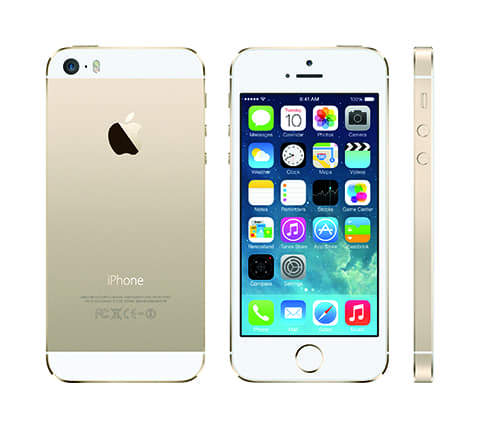The USA’s Transportation Security
Administration says travellers may be asked to ‘power up’ some electronic
devices, including mobile phones, before boarding direct flights to the US
[NEWS UPDATE WEDNESDAY 9 JULY]
The UK’s Department of Transport has extended the scope of the policy to some routes, both to and from the UK.
Transport Secretary Patrick McLoughlin said: ‘Passengers on some routes may also be required to show that electronic devices in their hand luggage can be powered up or face not being allowed to bring the device onto the aircraft.
‘Passengers are therefore advised to make sure electronic devices being carried in their hand luggage are charged before they travel.’
A Department for Transport spokesman today refused to say whether passengers should expect that their cameras may be checked at the airport.
However, ‘cameras and camera equipment’ are included in the Department for Transport’s definition of ‘electrical devices’ that are allowed in hand luggage, in a list published on its website.
British Airways statement:
‘Customers may be asked to turn on any
electronic or battery powered devices such as telephones, tablets, e-books and
laptops in front of security teams and/or demonstrate the item’s functionality.
‘If, when asked to do so, you are unable to
demonstrate that your device has power, you will not be allowed to fly on your
planned service.’
Though BA does not mention ‘cameras’ among
the devices its customers may be asked to switch on, a BA spokesman
agreed it would sensible for passengers to ensure their cameras are charged
before travelling to the US.
BA says the new regulations, published on
the airline’s website, were drawn from advice it received from the
Transportation Security Administration in the US, which refers to ‘electronic
devices’.
[original article, dated 7 July, continues
from here]
Yesterday,
the US-based Transportation Security Administration (TSA) updated its security
advice affecting ‘certain overseas airports’.
In
a statement,
dated 6 July, the TSA said: ‘As the travelling public knows, all electronic
devices are screened by security officers.
‘During
the security examination, officers may also ask that owners power up some
devices, including cell phones.
‘Powerless
devices will not be permitted on board the aircraft.
‘The
traveller will also undergo additional screening.’
It
is not clear, however, whether such devices include digital cameras.
A
spokesman for the UK’s Department for Transport would not be drawn on whether
cameras fall under the definition of ‘electronic devices’, saying that the
interpretation was ‘up to you’.
‘The
advice is the advice,’ the spokesman told Amateur
Photographer.
Heathrow
is among the airports where security screening has been intensified, according
to the BBC.
Earlier
today, Heathrow Airport declined to comment on the new security measures when
contacted by Amateur Photographer,
referring us to the Department for Transport.
Heathrow
Airport has since posted this message
on its website: ‘If you are flying to the US please make sure any of your
electronic devices are charged before you travel.
‘If
your device does not switch on you may not be allowed to bring it onto the
aircraft.’
Last
week, the Department for Transport said that most airline passengers ‘should
not experience significant disruption’, and that there was no change to the
threat level, which remains at substantial.
In
a statement,
dated 2 July, it added: ‘The safety and security of the public is our paramount
concern.
‘The
UK has some of the most robust aviation security measures and we will continue
to take all the steps necessary to ensure that public safety is maintained.’
The
Department for Transport said it would not be commenting on the detail of the
changes.








